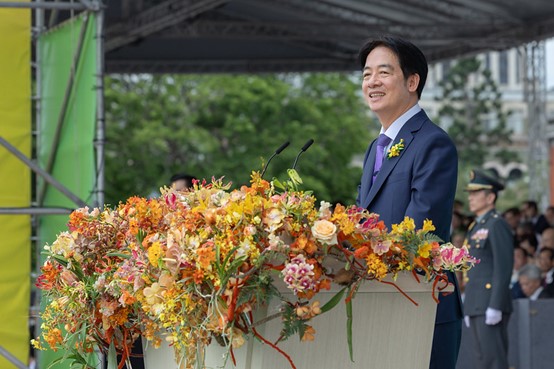
[애플경제 Adela Lin 타이페이 특파원]
Taiwan President Lai Ching-te in his inauguration speech pledged to maintain status quo with China, comforting Washington and other allies at a time when the global community is shadowed by Russia-Ukraine war and conflicts in the Middle East.
“I hope that China will face the reality of the Republic of China’s existence, respect the choices of the people of Taiwan, and in good faith, choose dialogue over confrontation, exchange over containment, and under the principles of parity and dignity, engage in cooperation with the legal government chosen by Taiwan’s people,” the 64-year-old Harvard graduate said Monday morning.
The trained physician addressed foreign dignitaries and local participants in front of Japanese-colony-style presidential office building after being sworn into office: “This can start from the resumption of tourism on a reciprocal basis, and enrollment of degree students in Taiwanese institutions.”
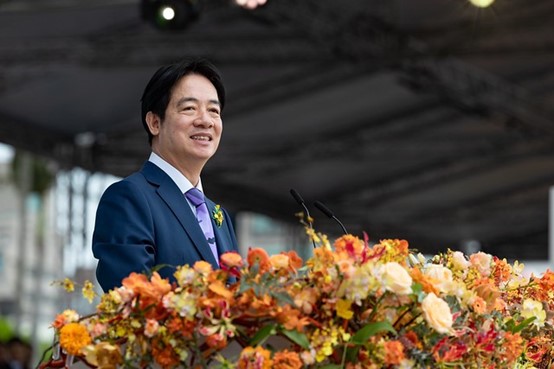
He called on China to “cease their political and military intimidation against Taiwan, share with Taiwan the global responsibility of maintaining peace and stability in the Taiwan Strait as well as the greater region, and ensure the world is free from the fear of war.”
Lai Ching-te’s administration will maintain the status quo at a stance neither yield nor provoke. “So long as China refuses to renounce the use of force against Taiwan, all of us in Taiwan ought to understand, that even if we accept the entirety of China’s position and give up our sovereignty, China’s ambition to annex Taiwan will not simply disappear. “
China’s military actions and gray-zone coercion are considered the greatest strategic challenges to global peace and stability. He added: “Taiwan is strategically positioned in the first island chain, and what affects us here affects global geopolitical development.”
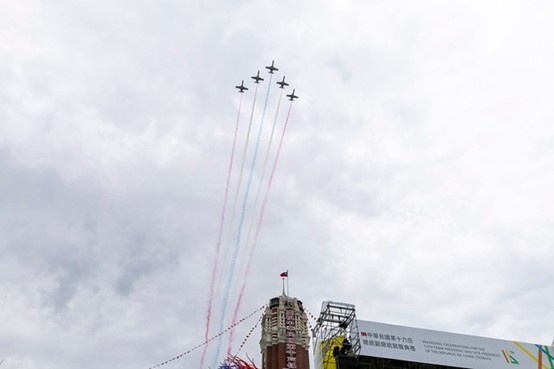
The president said: “We have a nation insofar as we have sovereignty.” Right in the first chapter of our Constitution, it says that “The sovereignty of the Republic of China shall reside in the whole body of citizens,” and that “Persons possessing the nationality of the Republic of China shall be citizens of the Republic of China.”
The new leader added: “The Republic of China and the People’s Republic of China are not subordinate to each other. All of the people of Taiwan must come together to safeguard our nation; all our political parties ought to oppose annexation and protect sovereignty; and no one should entertain the idea of giving up our national sovereignty in exchange for political power.”
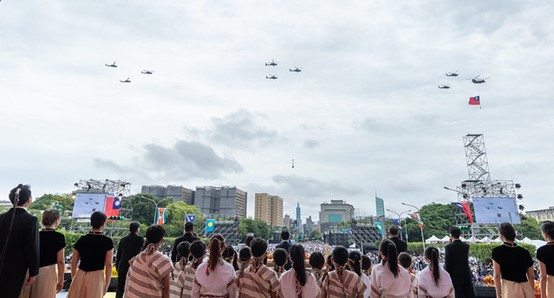
U.S. Secretary of State Antony Blinken in a statement congratulated Lai on his inauguration and the Taiwan people for once again demonstrating the strength of their robust and resilient democratic system.
“We look forward to working with President Lai and across Taiwan’s political spectrum to advance our shared interests and values, deepen our longstanding unofficial relationship, and maintain peace and stability across the Taiwan Strait.”
At least 508 foreign guests from 51 groups attended the inauguration ceremony and related events despite warnings from Beijing. The attendees included state heads from official diplomatic allies. Despite absence of official ties, there were delegations from the U.S., Canada and Singapore. Parliamentarians from Europe, U.K., Japan, Australia and South Korea also participated in the ceremony.
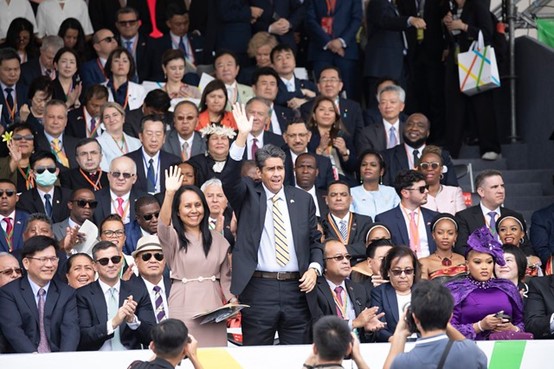
Cho Kyoung-Tae, the president of the Korea-Taiwan Parliamentarian Friendship Association, led a group of Republic of Korea’s National Assembly Members to join the celebration.
Amanda Hsiao, Senior China Analyst at Belgium-based International Crisis Group said Lai Ching-te is inheriting two things from his predecessor President Tsai Ing-wen . “On the one hand, because of the Tsai administration’s achievements, Taiwan is receiving more international attention and has a higher international stature than it has before. So in that sense it has more options to engage with particularly Western governments.”
But at the same time because cross-strait dialogue has been frozen for the last eight years, Taipei is also facing less options to directly deal with Beijing. That’s generally the larger strategic situation that is facing Taiwan. “On the one hand, there’s more space with Western governments, but on the other hand there’s less space with China,” Hsiao noted.
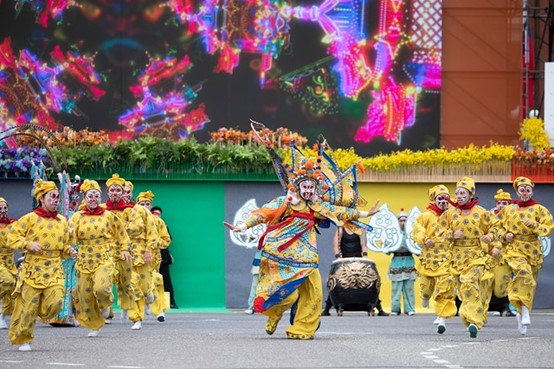
During his tenure as premier, Lai Ching-te previously described himself as a "pragmatic worker for Taiwan independence". China has labelled Lai as a “dangerous separatist.”
Lin Chong-pin, former Taiwan deputy defense minister, pointed out four factors which suggest to him that war will spare the Taiwan Straits, including the malleability of Lai Ching-te with his potentials for making pragmatic adjustments to avoid war with China.
Despite Lai Ching-te’s public image as a Taiwan independence firebrand, he is not totally insulated from the great power dynamics between the U.S. and China, according to Lin.
U.S. President Joe Biden’s China guardrail and Donald Trump’s dislike for warfighting could be the second factor.
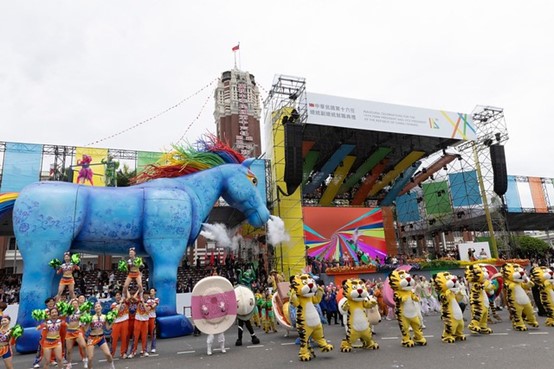
Other factors are the Chinese culture of strategic aversion to war-fighting and China President Xi Jinping’s quiet policy overhaul following the Twentieth Party Congress to which a war on Taiwan would be counterproductive.
“Basically, under Xi’s new foreign and domestic agenda, military conflict
across the Taiwan Strait runs counter to Beijing’s renewed charm offensive to
the West and economic revival at home, “ Lin Chong-pin explained. “As these four factors reinforce each other, war will spare the Taiwan Strait.”
Observers said Taiwan’s official diplomatic ties could be prelude to Beijing’s response to Lai Ching-te’s address. Nauru switched its diplomatic recognition to Beijing from Taipei just days after Taiwan’s ruling Democratic Progressive Party (DPP民進黨) won presidential election for an unprecedented third consecutive term in January. While the results marked the first time that a party managed a third successive four-year term since the island held direct presidential election in 1996, the DPP failed to hold on to the majority in the legislative elections earlier this year.
China-Taiwan ties reached the warmest during the tenure of former President Tsai Ing-wen’s predecessor Ma Ying-jeou (馬英九), who is from the Kuomintang. Relations across the Taiwan Strait deteriorated after the DPP’s Tsai took office in 2016 as Beijing lured Taipei’s allies to switch diplomatic recognition and reduced economic incentives. Tensions became aggravated in recent years amid Chinese military’s frequent “gray zone” tactics conducted in the sky and waters near Taiwan, with some warplanes entering the middle line in the Taiwan Strait. Taiwan now has 12 diplomatic allies after losing 10 under Tsai’s administration. U.S. provides arms to improve Taiwan’s self-defense capabilities despite an absence of formal diplomatic ties.
China sees self-governed Taiwan as a breakaway province and has never renounced the use of forces to bring it under control.

